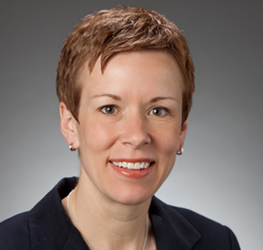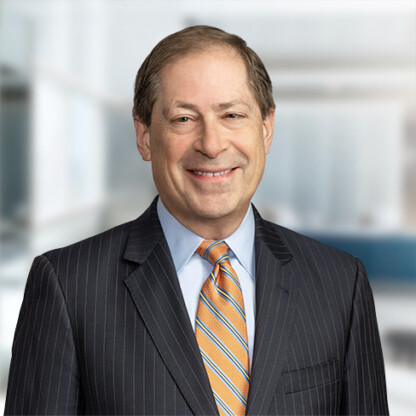Challenging Physician Judgment: Is Your Institution Exposed to False Claims Act Liability?

Many health care providers treating senior patients rely on Medicare reimbursement and undertake significant measures to ensure proper billing and compliant practices. However, providers across the country may soon be subject to increased liability under the False Claims Act (FCA) depending on the outcome of a case recently presented to the U.S. Supreme Court.
The Centers for Medicare and Medicaid Services (CMS) requires that physicians certify the medical necessity of many services as a precondition of reimbursement. For instance, CMS requires that physicians certify that a patient is terminally ill (meaning the patient has six months or less of life) before the agency will reimburse for hospice services. Likewise, CMS requires physician certification for certain covered post-hospital extended care services provided by SNFs.
Historically, CMS has indicated in the hospice context that physicians need not worry about liability due to challenges to their good faith clinical judgment (See CMS, Hospice Care Enhances Dignity And Peace As Life Nears Its End, CMS Pub. 60AB, Transmittal AB03-040, Mar. 28, 2003). But, a recent federal Court of Appeals decision, Care Alternatives v. United States (Care Alternatives), 952 F.3d 89 (3d Cir. 2020), has called into question this assurance, and the outcome of the case could have significant implications on providers across the country.
To successfully bring a FCA case, the plaintiff must prove the claims at issue were “false.” The nation’s courts are split as to what constitutes a false claim, and specifically whether a physician’s clinical judgment as to medical necessity may be deemed “false” for purposes of FCA liability. While “objective falsity” is not in the FCA itself, practitioners and some courts recognize it as a legal theory that there must be objectively verifiable facts to prove that a claim is false. For those courts that have adopted an objective falsity standard, a physician’s good faith clinical judgment generally may not be considered false, because clinical judgment is not objectively verifiable.
Care Alternatives v. United States, et al.
This issue is now before the U.S. Supreme Court in Care Alternatives. In this case, four non-physician employees of Care Alternatives, a New Jersey based hospice provider, brought a qui tam action alleging that Care Alternatives submitted false claims for patients who were not terminal, and thus not eligible for Medicare hospice benefits. The plaintiffs relied on the expert testimony of one physician who reviewed medical records and determined that the terminal illness certifications for some number of patients were not adequately supported by underlying medical need. In essence, the plaintiffs argued the certifying physician’s medical opinion was false, and thus rendered Care Alternatives liable for FCA penalties.
Before the Third Circuit Court of Appeals, Care Alternatives argued that proof of objective falsity would be necessary to maintain the claim, and a physician’s clinical judgment may not be deemed false for the purpose of FCA liability. Specifically, in support of its argument, Care Alternatives claimed that determining prognosis of life expectancy is an inexact science, and cited to CMS guidance that physicians need not worry about liability based on good faith clinical judgment (See CMS Pub. 60AB). Care Alternatives further argued that CMS recognizes the imprecise nature of predicting life expectancy by allowing hospice benefits to patients that live past the six month period constituting terminal illness, provided that a physician recertify that the patient is terminal – bolstering its position that a claim must be objectively false before it is material to a CMS decision not to pay it.
The Third Circuit Court, however, ultimately determined that a physician’s medical judgment could be deemed false, meaning objective falsity is not necessary for FCA liability. Specifically, the Third Circuit found that a certification of medical necessity could be considered false if a jury determined that an expert physician’s review of the same medical records was more persuasive. In particular, because “false” is not defined in the FCA, the Third Circuit turned to common law, and found that an opinion may be false for purposes of liability. The Third Circuit also cited to United States v. Paulus, in which the Sixth Circuit Court of Appeals held that medical opinions “may trigger liability for fraud when they are not honestly held by their maker . . . ” (894 F.3d 267, 275 (6th Cir. 2018)).
The Third Circuit’s decision contrasts with the decisions of other circuit courts that have found that plaintiffs must prove objective falsity to render a claim actionable under the FCA. For instance, in United States v. AseraCare, a similar case involving a hospice provider, the Eleventh Circuit Court of Appeals determined that a difference of reasonable opinion between physicians is not sufficient to render a claim false for the purpose of the FCA (938 F.3d 1278, 1301 (11th Cir. 2019)). The Fourth, Seventh, and Tenth Circuits have also explicitly adopted an objective falsity standard. In contrast, both the Ninth and Third Circuits have explicitly rejected the objective falsity standard. This circuit split was the basis for Care Alternatives’ petition for review by the U.S. Supreme Court. The Supreme Court will announce in the coming months whether it will accept Care Alternatives’ petition and review the Third Circuit’s decision on the merits.
Implications for Health Care Providers
The outcome of Care Alternatives could have significant implications for health care providers. If the Supreme Court grants Care Alternative’s petition for review, and then determines that objective falsity is not a necessary element under the FCA, providers may be subject to increased litigation risk. Specifically, if objective falsity is not necessary, a plaintiff could reach a jury merely by finding an expert physician who was prepared to disagree with the treating physician’s initial certification of medical necessity. Moreover, a finding that objective falsity is not required for FCA liability could expose providers to financial liability on the basis of medical necessity. In response, providers could choose to undertake costly measures to reduce the risk of litigation.
Importantly, several Circuit Courts, including the Second and Eighth Circuits, have not explicitly adopted or rejected the “objective falsity” standard. This means if the Supreme Court denies Care Alternatives’ petition for review, these Circuit Courts would be bound to accept (or reject) the objective falsity standard. As it now stands, health care providers across the country are subjected to different levels of litigation risk because of the circuit court split. For instance, while providers within the Third Circuit—New Jersey, Pennsylvania and Delaware—are now liable under the FCA for potential treble damages and penalties based on physicians’ medical judgments, others, including those located in the Eleventh Circuit (Alabama, Florida, and Georgia), can insist on a showing of objective falsity before being held liable.
Prominent trade organizations, including the American Medical Association, the American Health Care Association and PhRMA, support Care Alternatives in this case, and argue in amicus briefs that objective falsity should be necessary for FCA liability. The support of these organizations signals that, by and large, most health care providers believe that a physician’s clinical judgment should not be the basis for FCA liability.
The outcome of Care Alternatives could have serious implications for health care providers, especially for hospice, SNFs and others treating vulnerable elderly patients covered by Medicare. If the Supreme Court ultimately rejects the objective falsity standard, providers are at increased risk of FCA litigation, and may need to consider undertaking protective measures to limit such risk.


